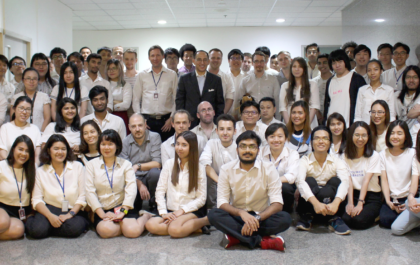The fashion industry, glamorous as it may seem to outsiders is actually a highly competitive, tough and challenging business. Thriving in such an environment demands excellence, authenticity and an intuitive understanding of that sweet spot between quality and price.
Enter Pavni.
Not afraid of being different and taking risks, she is known for her unique, elegant, trendsetting and sophisticated creations. Attend any Indian social event today in Bangkok, and chances are that more than a few women (and some men) will be spotted in outfits designed by her.
Commanding such a loyal following is obviously no easy feat, but this designer managed to do so by combining her outstanding talent with the necessary entrepreneurial ingredients of focus, perseverance and a strong point of view, to become the impressive force that she is today.
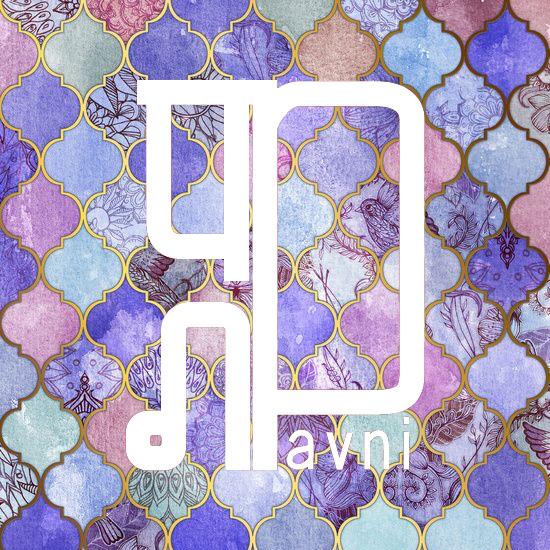
GenUp: Tell us about yourself.
Pavni : I’m a fashion designer. I make one of a kind Indian-western clothing for a very niche Thai Indian market in Bangkok. That’s like 85% of my work. I have a Bachelor’s degree in Economics and South Asian Studies from the University of Chicago and another Bachelors in Fashion Design. When I finished my first Bachelors (Economics) I realized that it wasn’t my calling and I had been fighting against what I truly wanted because I thought it sounded better. And so I did another three years in fashion. I went in a totally new direction and I don’t regret my path at all because the four years that I initially spent studying Economics and South Asian studies helped me think not just as a fashion designer. A lot of designers are about pretty things and fads but I also think about other things. I think about where we fit into it in terms of fashion history, because I think about how the economics of the world and the political atmosphere affects what we want to wear. For example, during the women’s lib movement in the 1920s, the clothes and body types that were preferred were flat chested women with no hips, because the women did not want to appear too womanly. So the clothes they wore in those days were these straight dresses that hid their curves. And then there was this whole thing about hemlines and stock markets and how shorter hemlines correlated to rising stock prices because women were more daring. And then hemlines went back down again after the crash in 1929. And like in the 1950s right after the second World War, clothes became really feminine again, and women began to ever wear corsets again because after the shock of the war they did not want any more drama and wanted to go back to an older way of life. Their waists became really tiny and the 50s were the time of really curvy women. And today because of the proliferation fo the internet and social media, there’s like over stimulation and too much information and so because of that when you ask what’s in fashion today, you can’t really say because there’s just too much. Everything is in fashion! So you can look like a woman from the 1930s, or dress retro or whatever, there are just so many niches. So when I make clothes, I think about all these things.
So fashion is not as superficial as everyone seems to think. What you want to wear is actually symbolic of what is happening around you. And even the material that you want to wear, for example there is so much awareness about the environment so there is a return to things like linens and cottons and other natural fabrics.
GenUp: What was your initial spark? Why did you decide to go on your own rather than work for a fashion company?
Pavni: I want to be free. Like I need to be able to do what I want. I have been blessed with the means and a business reputation that my mother had already started and so I was able to do what I wanted.
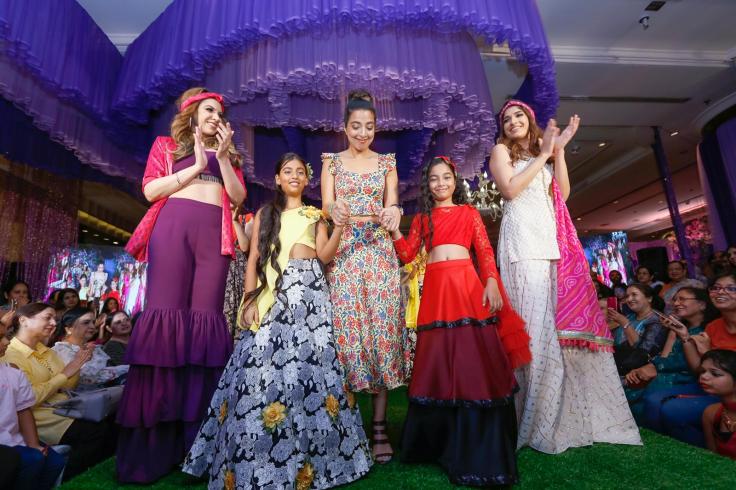
GenUp: Did your family support you in your decision?
Pavni: Yes, everyone is really supportive of me. If I come home late or whether I need to go off on a trip to look at fabrics, there is no issue from anyone. If I need to do a fashion show every week, they are there with me helping set things up and supporting me backstage. So I’m very blessed.
GenUp: Tell us a little bit about your business.
Pavni: I work very closely with my customers. I do have some ready made clothes but usually they call for an appointment and we work together to create an outfit that they like, and which is also my creation. In this way every customer gets an outfit that is unique from what is out in the market and with my label on them. My brand is “Pavni” which means pure. The idea is to have this principle be a part of the all the clothes. You are one of a kind and should stand out but within reason. I mean you shouldn’t have to look so outlandish and should still look like your own person. So that’s the idea.
GenUp: How do people know where to find you?
Pavni : I wish I could say something cool like ‘online’ or something, but really it’s mostly word of mouth. Once a customer is happy and they tell their friends and cousins and so that’s how they find out about me. And sometimes I get people who know about me from instagram but not too much. I use social media to stay prevalent and relevant. Because today everyone is on instagram everyday and they’re seeing all these other big designers like Versace and Anamika and so they need to be reminded that you exist and so you need to be around. And obviously it is also a platform to attract a new market which is happening but not too much. And also to keep the customer impressed by showcasing your stuff. Because when you have a customer who’s wearing your clothes it isn’t the same as having model wearing them. The model will be 100% the my creation. So yes, instagram is something that I use quite a bit.
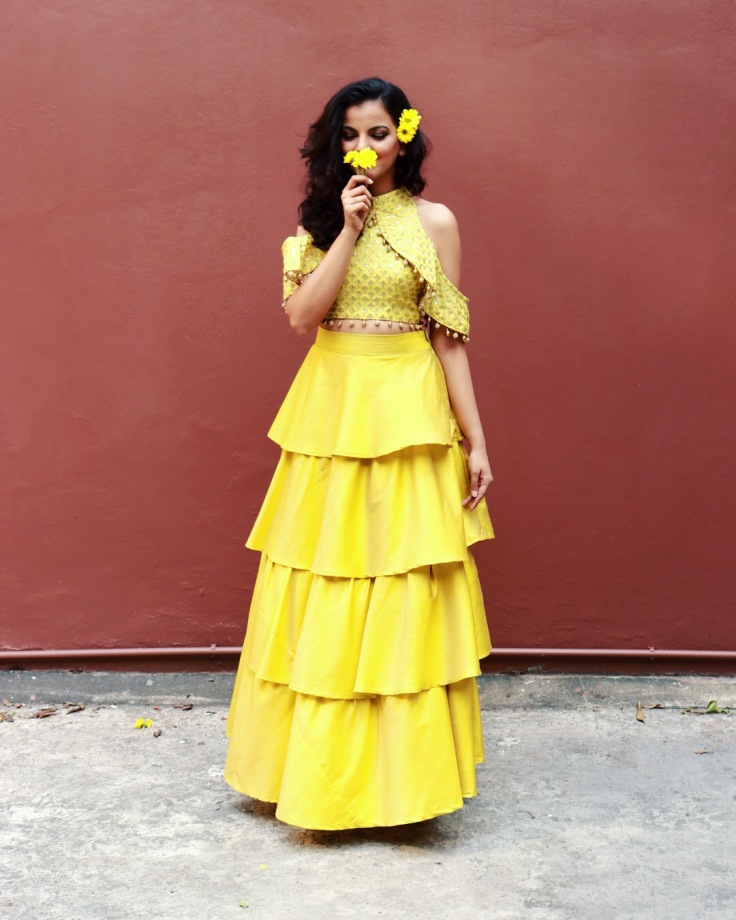
GenUp: What was the biggest hurdle you faced when you started your business? What mistakes did you make?
Pavni: The biggest mistake I made was that I was too nice! I learned that the mentality of customers is such that you must be a little “snobby”, and they will want you more. I mean of course I have to be super attentive too but it took me a while to realize that I cannot agree to everything. I would work my entire schedule around someone, for example they would tell me that they work all day and cannot come to see me before 6 pm, and I would stay at work late for them, And that actually drove my demand down. It took me a while and when I did gain more confidence, I would say no to them. My store stayed open until 6 and they would just have to take the time off from whatever life it was that they were leading to come to see me. It made them feel my product was more “worth it”. So I think you have to have confidence, you have to believe in your product and believe that they want it enough. In the early days I would do many things where I would bend over backwards. I mean I was new and I really wanted them to like my clothes. So I would say things like “Come in, please look at my stuff”, and I would show them, and the way I did that made them feel like I was begging. So that translated into desperation. It’s a bit strange but the kind of people that would wear my clothes at parties, it was like they almost wanted me to be snobby. But I’m not good at being the right kind of snobby to certain types of people, so I just thought that all I needed to do was be confident in myself and my creations. You try hard, but not too hard and someone doesn’t like your stuff, then someone else will.
GenUp: Is your business self funded? Are there outside investors? Do you plan to raise money and maybe go international?
Pavni: I am self funded. I would like to go international but I feel like I have a lot of obstacles to overcome before I can do so.
GenUp: Have you experienced failure? How did you bounce back?
Pavni: Yes. In the early days, I wanted to sell clothes to non-Indians too and so I rented a store in Siam Square which is a retail place for fashion. And it was just terrible. I realized that I hadn’t thought it through, in terms of the clothes I wanted to sell. There was no cohesion in anything I did. I was also so ridiculously ambitious, I mean I hadn’t even finished my fashion school yet, I hadn’t even done my fashion school collection. I was just all over the place and I kinda did it all wrong. And that was a big failure and I shut down. It made me stronger and I realized that you’ve got to really know what you want to do, there’s a lot of competition out there and you must always have your A game. So you have to have a plan. I don’t have a formal business plan or anything, and I do a lot of things by instinct but I still do have to have some sort a of a plan.
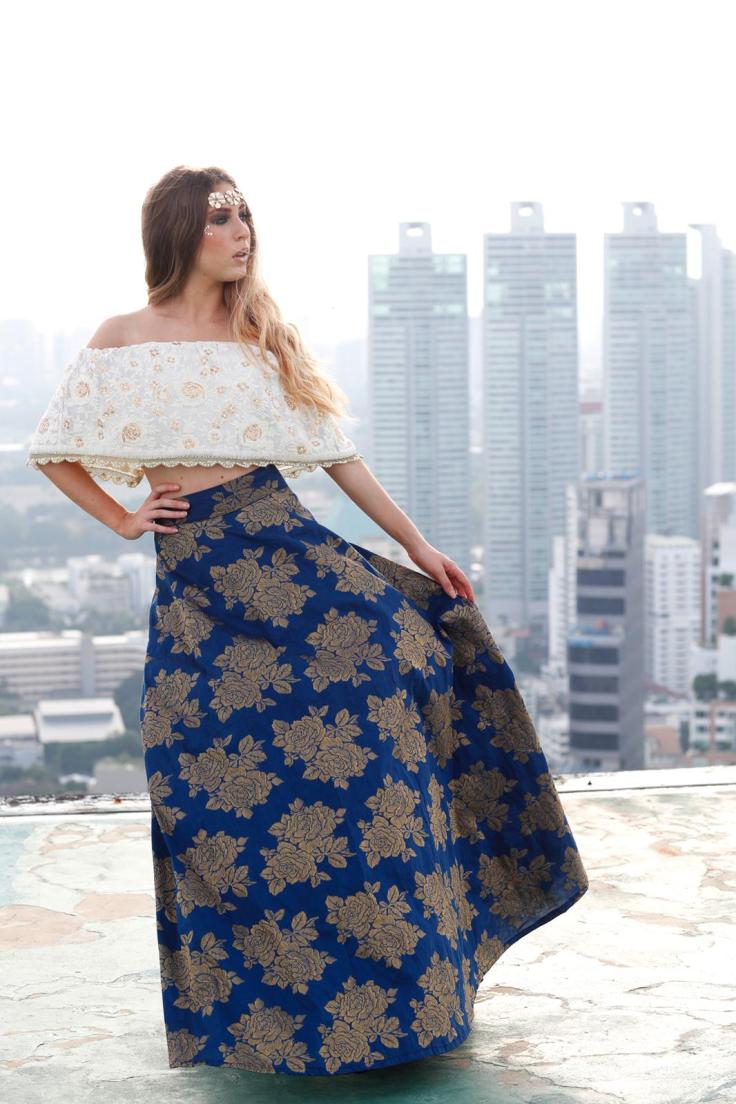
GenUp: What drives you? How do you stay motivated?
Pavni: If you asked me that when I was just starting out, I would have said something like, “That’s just who I am. I love clothes and this is what I do”. But after all these years, I have to say that it is harder to stay motivated. Things become a little less exciting as time goes on. So what really keeps me going is when I get those messages from customers, telling me how much they love my outfits, and how good they feel in them, things like that make me feel good and I know that I’m doing the right thing. And also when I do a fashion show, and I have to do a whole new collection and I feel like I can do something totally new and unique, something that isn’t specifically for a particular customer it feels good. Because when you do something for a particular customer, you’re always thinking how she would look, how her body would look, how she would carry it off etc. But while doing a fashion show, all I’m thinking is what do I want to make? I have the freedom to create. And that keeps me motivated.
GenUp: Who do you admire?
Pavni: I admire a lot of Indian designers, among them Anamika. But that is also because I have seen her process closely. When I see her create, I’m amazed. I’m also really inspired by my mom, who started doing this more than 20 years go at a time when women weren’t working and she didn’t have half the support that I did when I started. And her creativity. Like even today when she pretends she doesn’t like fashion, she still just knows what to do. So she has this instinct and is sometimes years ahead of the curve. So when I watch her, I’m absolutely amazed.
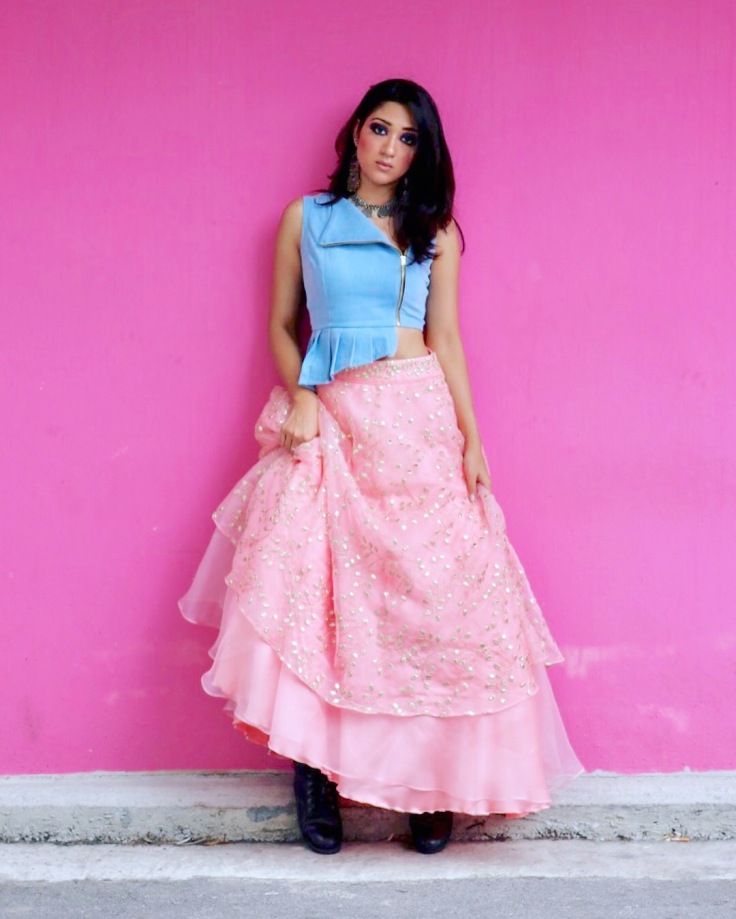
GenUp: What don’t you like about being an entrepreneur?
Pavni: So many things. I don’t like that I don’t get real holidays. Because other people get to simply go away and leave it with their boss or their colleague or whomever. But I will constantly get calls and messages from customers and I usually have to reply. But funnily enough that’s also what I love about my job. That it’s flexible enough to let me go on holiday whenever I want. Another thing that I dislike is that it has made me have this love hate relationship with my clothes, because we are living at time when we are a little too connected to each other. Like this how my customers sometimes order clothes, “Hey I really like that one, can you make it for me in pink?” And then 20 minutes later, they’re like, “No! In green”. And then 20 minutes later they want to change it back to pink. And then the next day to they want to change that to long sleeves and then back to bell sleeves or something. And that can be a bit frustrating.
GenUp: What does success in life mean to you?
Pavni: Success to me means being happy and fulfilled. And because we live in a world where money is important, it is about doing what you love that can also brings in money. Not necessarily billions or something but just enough to support your lifestyle. So you love what you do and do what you love.
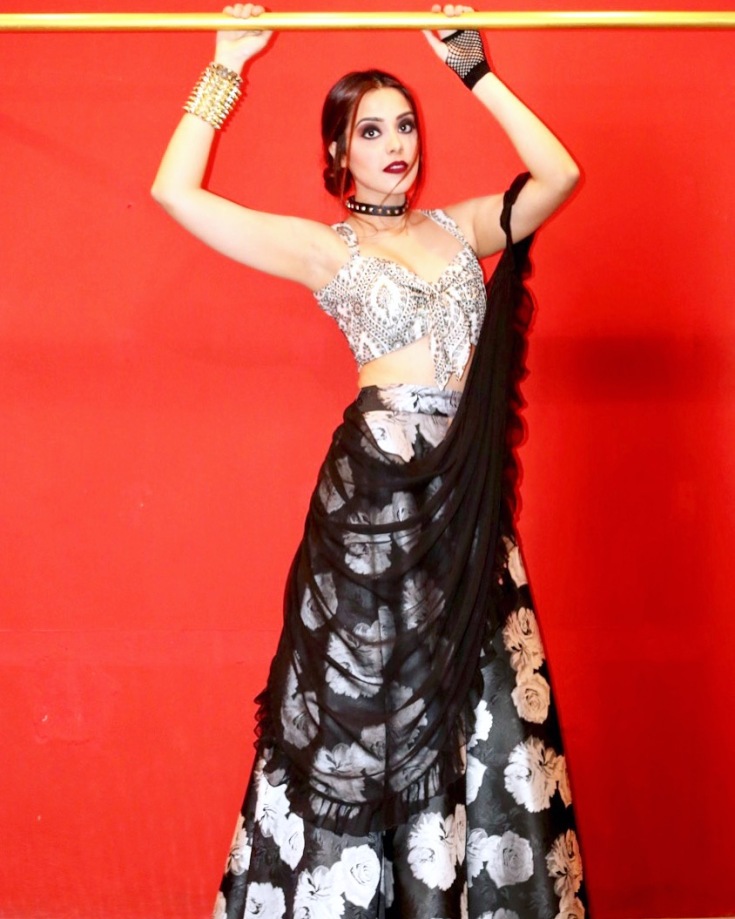
GenUp: What advice would you give someone who is considering the entrepreneurial path?
Pavni: Well I do have specific advice for someone considering fashion design: You know when someone sees you at your boutique they think it’s all so glamorous. Well it’s not. Being a fashion designer is the exact opposite of glamor. The person I hang out with the most, after my husband, aren’t models or actors. They are my seamstresses. The production line. And I spend all day and everyday with them. The other thing is that you are walking around all day, sweating in the heat in the fabric markets. You aren’t wearing any fancy clothes or jewelry. You don’t draw an outfit and it magically gets made. You have to source the fabric, get it made, do quality control. All very messy and much harder than it seems. So really think about it. Are you ready for that? If you simply love fashion, perhaps you should go into something like fashion merchandising. Just be a buyer. This fashion designing and production is a whole different ball game. And then you go to parties and people are constantly judging what you’re wearing. After all you’re a fashion person but after you make clothes all day, after looking at clothes all day and after you fit people all day, all you want to do is wear a pair of jeans and t shirt. So do think carefully.
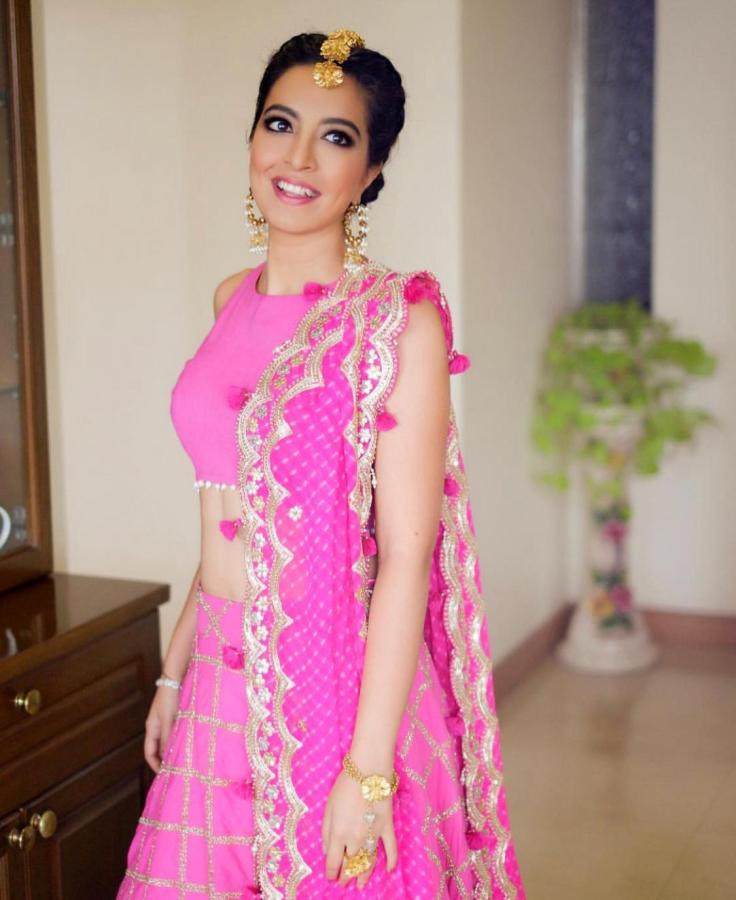
GenUp: Thank you so much Pavni, it’s been a pleasure.
Pavni: Thank you!!
Genup: Where can we go to learn more?
Related posts
Today's pick
Hot topics
Welcome to Generation Upstart
It starts with an idea — a fusion of thoughts and experiences, a blending of desires and dreams. Bursts of electricity fueled with faith, love and creativity leap across synapses generating the necessary expression to give it real form and substance. Sometimes, an entrepreneur’s call…
Careerlist: Never Waste a Crisis
According to Michael Scissons, the most important thing you can do to maximize your chance of entrepreneurial success is to build your tribe. Start as early as possible, trimming and pruning like a patient gardener, while continuing to add value to the network. For these…
RingZero: On Employee Satisfaction and Success
Great people make the great teams that make the great workplaces, and Mr. Asmat Yousri is a big believer in people. After all, he has been at this since 1996. An ex-banker, he saw no obstacles transitioning from a corporate position to an entrepreneur. In…



